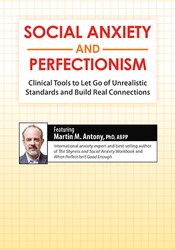Si iscriva oggi stesso a un corso online per un apprendimento flessibile e autonomo, senza necessità di orari fissi.


-
 Corso onlineChe sia nuovo alla Terapia dei Sistemi Familiari Interni (IFS) o che pratichi il modello da anni, si registri e scoprirà come perfezionare e personalizzare il modello per adattarlo alle esigenze uniche del suo cliente.Valore: 1.140,66 euro *€275,99Che sia nuovo alla Terapia dei Sistemi Familiari Interni (IFS) o che pratichi il modello da anni, si registri e scoprirà come perfezionare e personalizzare il modello per adattarlo alle esigenze uniche del suo cliente.21 ottobre, 2020Corso onlineValore: 1.140,66 euro *€275,99Che sia nuovo alla Terapia dei Sistemi Familiari Interni (IFS) o che pratichi il modello da anni, si registri e scoprirà come perfezionare e personalizzare il modello per adattarlo alle esigenze uniche del suo cliente.Valore: 1.140,66 euro *€275,99
Corso onlineChe sia nuovo alla Terapia dei Sistemi Familiari Interni (IFS) o che pratichi il modello da anni, si registri e scoprirà come perfezionare e personalizzare il modello per adattarlo alle esigenze uniche del suo cliente.Valore: 1.140,66 euro *€275,99Che sia nuovo alla Terapia dei Sistemi Familiari Interni (IFS) o che pratichi il modello da anni, si registri e scoprirà come perfezionare e personalizzare il modello per adattarlo alle esigenze uniche del suo cliente.21 ottobre, 2020Corso onlineValore: 1.140,66 euro *€275,99Che sia nuovo alla Terapia dei Sistemi Familiari Interni (IFS) o che pratichi il modello da anni, si registri e scoprirà come perfezionare e personalizzare il modello per adattarlo alle esigenze uniche del suo cliente.Valore: 1.140,66 euro *€275,99 -
 Corso onlineGabor Maté va oltre le istruzioni e dimostra esattamente come utilizza l'Inchiesta Compassionevole per facilitare la guarigione. Lo guardi mentre mette in pratica il suo metodo unico con oltre 10 persone del pubblico.Valore: 689,89 € *€275,99Gabor Maté va oltre le istruzioni e dimostra esattamente come utilizza l'Inchiesta Compassionevole per facilitare la guarigione. Lo guardi mentre mette in pratica il suo metodo unico con oltre 10 persone del pubblico.15 luglio, 2022Gabor Maté va oltre le istruzioni e dimostra esattamente come utilizza l'Inchiesta Compassionevole per facilitare la guarigione. Lo guardi mentre mette in pratica il suo metodo unico con oltre 10 persone del pubblico.Valore: 689,89 € *€275,99
Corso onlineGabor Maté va oltre le istruzioni e dimostra esattamente come utilizza l'Inchiesta Compassionevole per facilitare la guarigione. Lo guardi mentre mette in pratica il suo metodo unico con oltre 10 persone del pubblico.Valore: 689,89 € *€275,99Gabor Maté va oltre le istruzioni e dimostra esattamente come utilizza l'Inchiesta Compassionevole per facilitare la guarigione. Lo guardi mentre mette in pratica il suo metodo unico con oltre 10 persone del pubblico.15 luglio, 2022Gabor Maté va oltre le istruzioni e dimostra esattamente come utilizza l'Inchiesta Compassionevole per facilitare la guarigione. Lo guardi mentre mette in pratica il suo metodo unico con oltre 10 persone del pubblico.Valore: 689,89 € *€275,99 -
Diventa un affiliato
Argomenti di tendenza:












